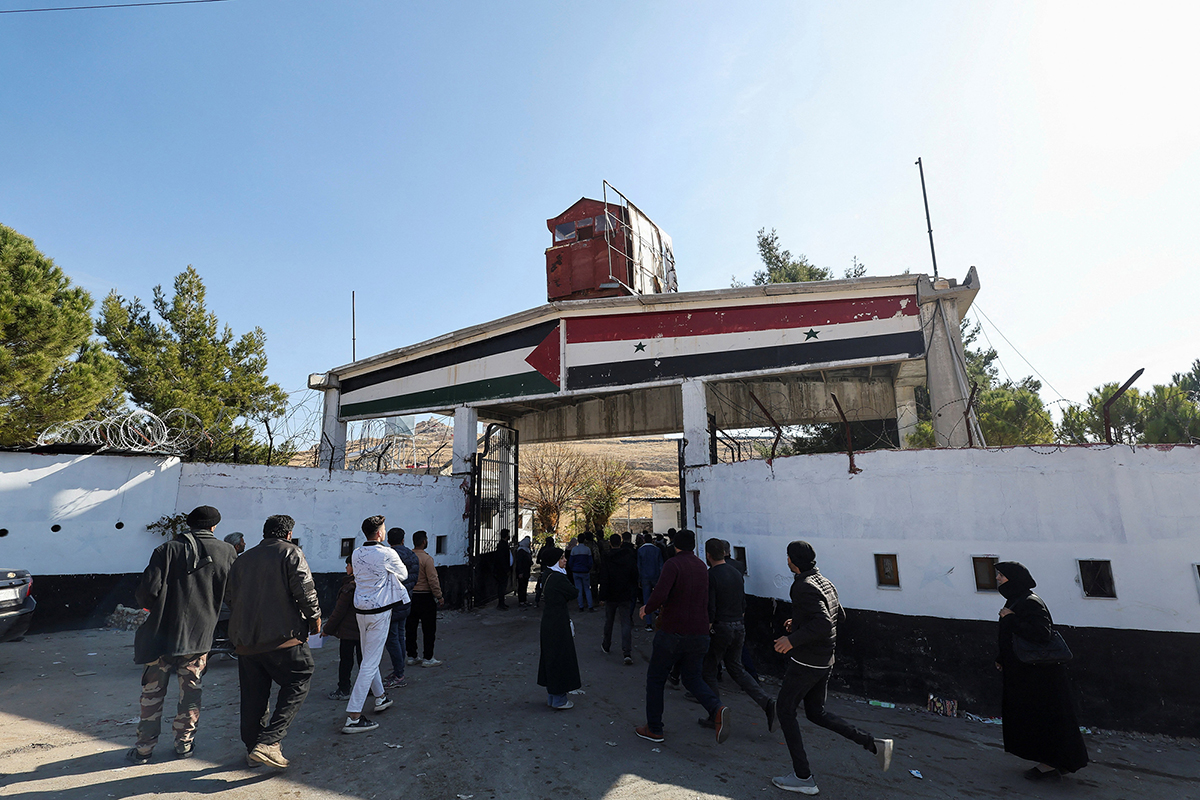Christian persecution is increasing dramatically around the globe, report says
Report shows that increases in persecution were found in 60 percent of the 18 countries studied
A report on the persecution of Christians globally has found increases in violations in nearly two thirds of countries examined.
The report by Aid to the Church in Need, a Catholic pontifical charity, called “Persecuted and Forgotten?” said that between August 2022 and June 2024 persecution of Christians had become worse in 60% of 18 countries investigated.
The remainder were considered to be unchanged with the exception of Vietnam, a communist country that has seen improvements in the treatment of Christians amid the reestablishment of diplomatic ties with the Vatican.
For the first time, the report, which is published every two years, included Nicaragua among those countries where the “faithful are suffering because of state authoritarianism or attacks from extremists.”
“Around the world Christians are finding themselves subject to increased risk of harassment, arrest and violence — churches are burnt, Christian women are abducted and raped, and the faithful are killed for their beliefs,” said the introduction to the report, released in London Oct. 22.
“The increase in religiously-motivated harassment against Christians is higher than it has ever been, reflecting the findings of other organizations, such the Pew Research Center, which found Christians suffering harassment — which covers everything from verbal abuse to murder — in 160 countries,” the report added.
A key finding was a shift in the epicenter of militant Islamist violence from the Middle East to Africa, with Christians in countries such as Burkina Faso, Nigeria and Mozambique being terrorized.
The report also said Christians were treated as enemies of the state in countries like China, Eritrea, India and Iran where they were subjected to increasingly repressive measures.
There were increased threats to Christian children, especially girls, who suffered abduction, sexual violence, forced marriage and forced conversion, the report said.
In a foreword to the report, Archbishop Bashar Warda of Erbil, Iraq, a country in which religious freedom violations have worsened, said a decade after Islamic State group jihadists forced hundreds of thousands of Christians to flee, “the genocide that we suffered continues to cast a long shadow — the migration of Christians continues to the point where the Church is threatened with extinction in towns and cities where our presence dates back almost to the time of Christ.”
There are now fewer than 200,000 Christians in Iraq compared to 1.5 million in 2003, the year of the U.S.-led invasion of Iraq.
Archbishop Warda wrote, “Our prayer is that those reading this report, whether governments or others with influence, will do more than just pay lip service to reports of Christian persecution.
“They must match their words with action — clear and decisive policy commitment — to help those whose only crime is the faith they profess,” he wrote. “It is vital that they act on early warnings — given in reports such as this — to prevent what happened to us in Iraq taking place elsewhere.”
The report shows that the Christian community in Syria has also plunged, falling from 1.5 million people at the outbreak of civil war in 2011 to just 250,000 today.
It said that Islamist violence has created 2 million refugees in the West African nation of Burkina Faso alone amid a phenomenon of “trans-national Islamist militant aggression” in the southern Sahara and the rise of “opportunistic caliphates” in areas partly inhabited by Christians.
Myamnar has meanwhile destroyed 85 churches, China has arrested up to 10,000 Christians and in India there have been 720 incidents of Christian persecution, including the detention of 855 people in Uttar Pradesh under anti-conversion laws.
Emerging data pointing to a surge in cases of minority faith girls and young women being abducted was reported in Pakistan, and other research showed it was a recurring problem in Egypt.
For the first time in the 18-year history of the report, Nicaragua is included because of extreme oppressive measures targeting Christians, notably the mass detention and expulsion of clergy, including all members of the apostolic nunciature.
Vietnam, however, is categorized as “slightly improved” thanks to the reduced bureaucratic restrictions on the registration of religious groups.


